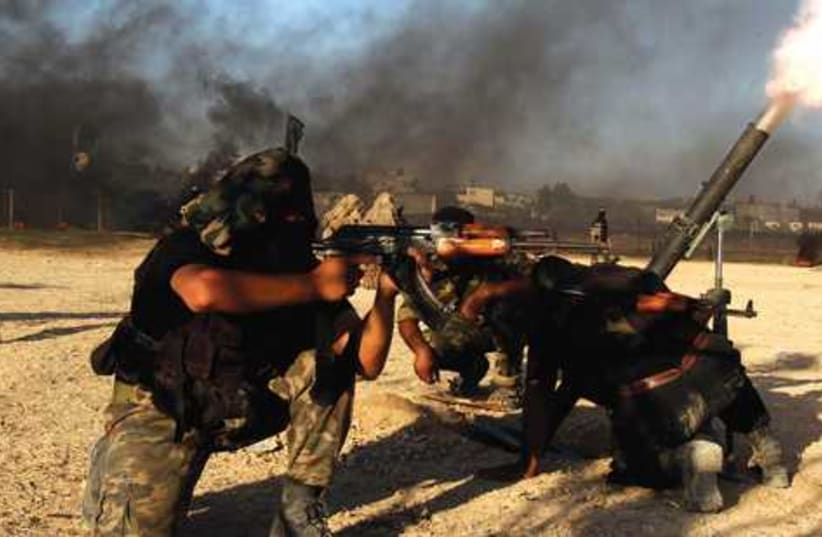Israeli strikes on the Gaza Strip could threaten the ceasefire reached at the end of 2012's Operation Pillar of Defense, the Islamic Jihad said Sunday, according to Palestinian news agency Ma'an.The Egyptian-mediated ceasefire was reached on November 21, 2012 after eight days of Palestinian rocket fire at Israel and IAF counterstrikes.The Israel Air Force has been striking terror targets in the Gaza Strip in response to a recent drizzle of Palestinian rocket fire at southern Israel, including five fired at Ashkelon that were intercepted by the Iron Dome on Thursday.
On Sunday morning, the IAF struck an Islamic Jihad member in the northern Gaza Strip, who the army says was "personally responsible for the firing of rockets at Ashkelon last Thursday," and who was involved in planting rocket launchers.According to Palestinian media, two Palestinians were injured in that strike, a 22-year-old motorcyclist who sustained serious injuries, along with a 12-year-old boy who suffered moderate injuries.Israel's "continuous violations against our people may lead to the collapse of this agreement unless they stop immediately," said a statement by the Islamic Jihad's military wing.The al-Quds Brigades vowed Israel would pay a heavy price for the strikes, that were the latest in "a long series of crimes," at the appropriate time.On Sunday, Prime Minister Binyamin Netanyahu said that Israel would maintain the quiet in the South by forcefully responding to every rocket attack coming from the Gaza Strip.
"We are determined to preserve the quiet in the South," Netanyahu said. "We do this through a policy of prevention and by responding powerfully against those who try to harm or hurt us. I suggest that Hamas take our policy into account."Defense Minister Moshe Ya'alon said Israel would not allow anyone to return it to a "routine" of rocket fire, warning that "those who try to do so will pay a very high price.""We see Hamas as being responsible for what occurs in the Gaza Strip, and if it does not know how to enforce its sovereignty on what takes place on the ground, we'll keep hitting its interests. I would not recommend that anyone in the Gaza Strip tests our patience and determination to protect the security of Israeli civilians," he added.
